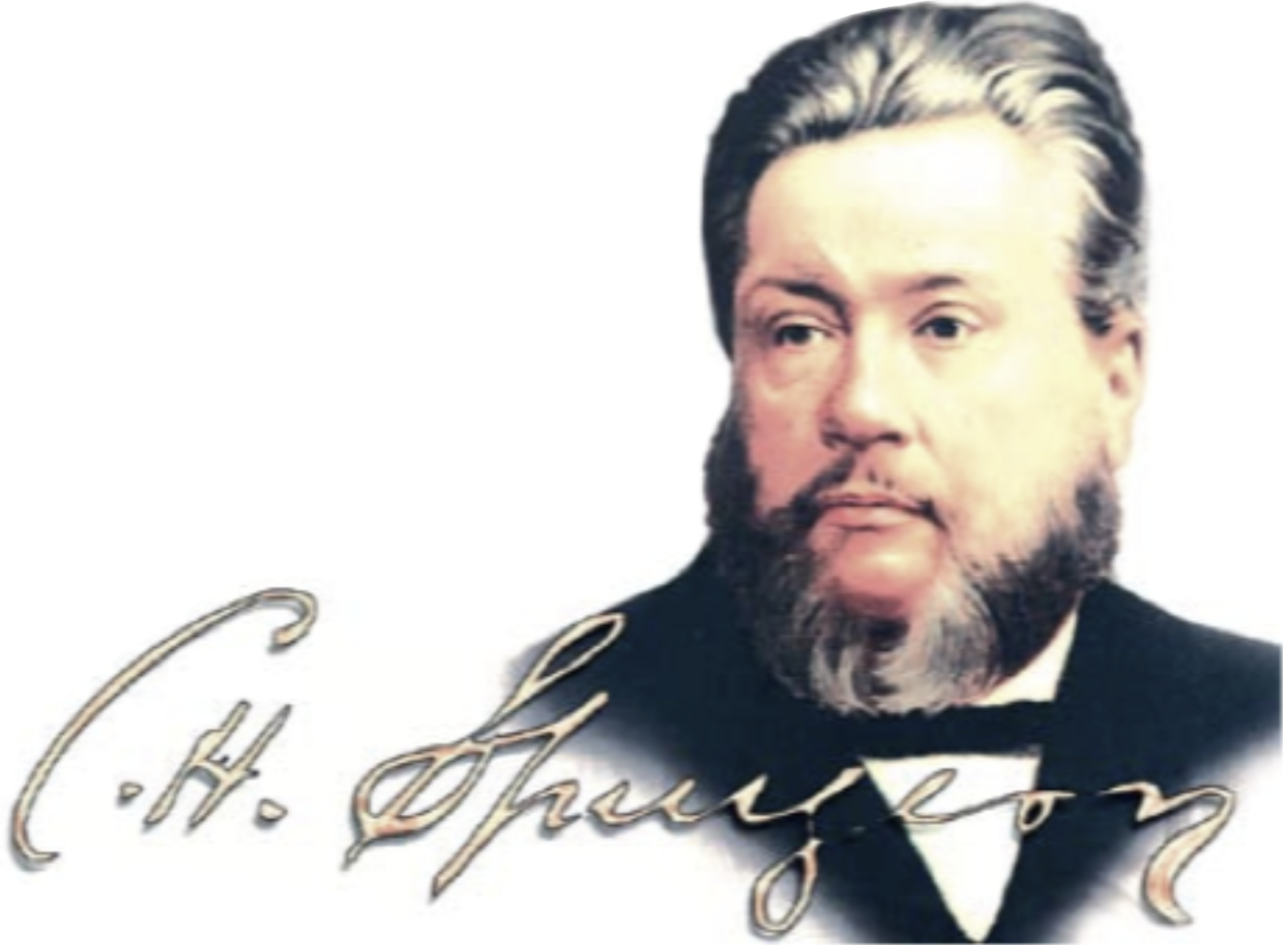The 1689 Confession of Faith (Summarized)

C.H. Spurgeon on the 1689 Confession of Faith
“This ancient document is a most excellent epitome of the things most surely believed among us. By the preserving hand of the Triune Jehovah, we have been kept faithful to the great points of our glorious gospel, and we feel more resolved perpetually to abide by them….
Here, the younger members of our church will have a Body of Divinity in small compass, and by means of the Scriptural proofs, will be ready to give a reason for the hope that is in them.”
—C. H. Spurgeon, C. H. Spurgeon’s Autobiography, 1854–1860 (Chicago; New York; Toronto: Fleming H. Revell Company, 1899), 160–161.
I. The Basic Themes of our 1689 Confession of Faith
A. Orthodox (Creedal)
Our 1689 Confession of Faith contains the essence of orthodox (creedal) Christianity, which has weathered the storms against dangerous heresies through the centuries. (More info: FAQ: “What are creeds and confessions of faith?” )
B. Gospel-centered
Our 1689 Confession of Faith emphasizes that our salvation and the whole Christian life flows to us from the free grace of God in the gospel of Christ.
C. Reformed & Puritan
Our 1689 Confession of Faith contains the essence of
- the doctrines of grace
- and the Five Solas of the Protestant Reformation
- rooted in the God-centered theology of the Puritans.
D. Baptist & Congregational
Our 1689 Confession of Faith is distinguished by believer’s baptism and elder-led congregational church government.
II. A Summary of our 1689 Confession of Faith
Note: This is only a summary. For our full Confession, see the1689./org 1 .
Preface
This confession of faith is set forth to declare and defend our beliefs as Reformed Baptists and to promote Christian unity and piety.
Unit 1: Foundations (chs. 1–6)
1: The Holy Scriptures are the only infallible and ultimate rule of all saving knowledge, faith, and obedience, superior to natural revelation and creation in revealing God and his will (2 Tim. 3:15–17; Isa. 8:20; Luke 16:29, 31).
2: God and the Holy Trinity. There is one true God in three persons — Father, Son, and Holy Spirit — perfect, infinite, and governing all things according to his sovereign will, abounding in mercy and grace (1 Cor. 8:4, 6; Jer. 10:10; Isa. 48:12).
3: God’s Decree. By his sovereign, all-wise and eternal decree, God has freely ordained all things — including the salvation of his elect — while not destroying human will or secondary causes (Isa. 46:10; Eph. 1:11; Rom. 9:15, 18).
4: Creation. God created the universe out of nothing in six days to display his glory, power, wisdom, and goodness (Gen. 1:1–31; Heb. 1:2).
5: Divine Providence. God by his providence governs all creatures and all their actions, so that everything works together for God’s glory and the good of his elect, while not destroying human will or secondary causes (Heb. 1:3; Job 38:11; Isa. 46:10, 11).
6: The Fall of Man. All mankind fell in Adam as their federal head, becoming corrupted in every part of their nature, wholly opposed to spiritual good, inclined only to evil; and are wholly dependent on God’s gracious intervention for their salvation (Gen. 3:6; Rom. 5:12; Rom. 3:23).
Unit 2: The Covenant (chs. 7–20)
7: God’s Covenant, ultimately revealed through Christ in the New Covenant, is rooted in his eternal decree (Covenant of Redemption) to save the elect (Luke 17:10; Jer. 31:31–34).
8: Christ the Mediator, who is truly God according to his divinity and truly man according to his humanity, fulfills the offices of prophet, priest, and king, and is appointed by God and anointed by the Holy Spirit to act in redemption on behalf of the elect (John 1:1, 14; Heb. 5:5, 6).
9: Free Will, possessed by man in the state of innocence, was lost in the fall, rendering him unable to convert himself and wholly dependent on God’s grace for salvation (Matt. 17:12; Jas. 1:14; Dt. 30:19).
10: Effectual Calling is accomplished by the Holy Spirit, who produces faith in Jesus Christ in the hearts of God’s elect through the preaching of the gospel (Rom. 8:30; Rom. 11:7; Eph. 1:10, 11).
11: Justification is an act of God’s free grace wherein God pardons all our sins and accepts us as righteous through faith in Christ alone (Rom. 3:24; Eph. 1:7; 1 Cor. 1:30, 31).
12: Adoption is an act of God’s free grace whereby believers are made God’s children, with all rights and privileges of sons, and are given the Spirit of adoption (Eph. 1:5; Gal. 4:4, 5).
13: Sanctification is a work of God’s free grace wherein believers increasingly die unto sin and live unto righteousness (Acts 20:32; Rom. 6:5, 6).
14: Saving Faith is the work of the Spirit of Christ in the hearts of God’s elect, normally wrought through the Word, leading them to rest upon Christ alone for salvation (2 Cor. 4:13; Eph. 2:8).
15: Repentance unto Life is a grace whereby sinners, sensing their own sin and God’s mercy, turn from sin to God with a full purpose for new obedience (Zech. 12:10; Acts 11:18).
16: Good Works are fruits of the Spirit in believers which demonstrate faith, express thankfulness, strengthen assurance, edify others, and glorify God (Jas. 2:18, 22).
17: Perseverance of the Saints. Since true believers have the Holy Spirit, they will never fully or finally fall from grace, but (in spite of temporary backslidings) will persevere in repentance and faith to the end (Phil. 1:6; John 10:28, 29).
18: Assurance of Grace and Salvation. Believers in Christ can gain certain assurance of faith based on Christ’s person and work revealed in the Word of the gospel, and the inward evidence of God’s grace (Heb. 6:11, 19; 6:17, 18; 1 John 5:13).
19: The Law of God. The moral law of God (summarized in the Ten Commandments) obligates all to obey it, but only believers in Christ are under the grace which enables true obedience to it (Rom. 3:31; Matt. 5:17, 18).
20: The Gospel and the Extent of Its Grace. Since believers are no longer under the condemnation of God’s law, the gospel strengthens their obligation to obey that law, which is given to Christians as a rule of life (Rom. 3:31; Gal. 3:21).
Unit 3: God-centered Living — Freedom and Boundaries (chs. 21–30)
21: Christian Liberty and Liberty of Conscience. Believers in Christ are set free from the guilt and power of sin, the wrath of God, and the traditions of men, freed to access God through Christ and live in joyful obedience to God’s law (Rom. 7:22; Gal. 5:1; 1 Pet. 2:16).
22: Religious Worship and the Sabbath Day. Worship is due to God alone as prescribed in Scripture, which includes the setting aside of the whole first day of the week as the Lord’s Day wherein we rest from our regular works and activities, gather as a church to engage in prayer, Scripture reading, preaching, singing, and the ordinances (baptism and the Lord’s Supper), and to do works of necessity and mercy (Ex. 20:3–5; Matt. 12:8; Rev. 1:10).
23: Lawful Oaths and Vows are part of religious worship and must be made with seriousness and in keeping with God’s truth and justice (Dt. 6:13; 2 Cor. 1:23).
24: The Civil Magistrate(government official) is appointed by God to preserve peace and justice, punish transgressors, and reward righteousness (Rom. 13:1–4; 1 Pet. 2:13, 14).
25: Marriage is ordained by God and is between one man and one woman for their mutual help, procreation, and the prevention of sexual immorality (Gen. 2:24; Matt. 19:5, 6).
26: The Church. Christ is the only head of the church — the universal church, comprised of all the elect — and every local church, made up of baptized believers, and to which every Christian ought to be joined and live a holy life in love, peace, unity, and submission to their pastors, and each church ought to hold formal association with other likeminded churches (1 Cor. 1:2; Eph. 1:22, 23).
27: The Communion of Saints. All members of the church are to maintain holy fellowship with one another in worship, benevolence, and mutual edification (1 John 1:3; Heb. 10:24, 25).
28: Baptism and the Lord’s Supper are church ordinances instituted by Christ which signify the believer’s communion in him, to be observed until the end of the world (Matt. 28:19, 20; 1 Cor. 11:26).
29: Baptism signifies the believer’s union with Christ in his death and resurrection, and commitment to walk in newness of life (Rom. 6:3–5; Col. 2:12).
30: The Lord’s Supper commemorates Christ’s death and spiritually nourishes our souls upon Christ when received by faith (1 Cor. 11:23–26; Luke 22:19, 20).
Unit 4: The World to Come (chs. 31–32)
31: The State of Man After Death. The souls of the deceased immediately return to God, and the body awaits the final resurrection (Eccl. 12:7; Luke 23:43).
32: The Last Judgment. Jesus Christ will return to judge all mankind and angels according to their deeds, with eternal rewards for the righteous and eternal punishment for the wicked (Matt. 25:31–46; 2 Thess. 1:7–10).
Appendix on Baptism
We are committed to Scripture’s robust teaching on believer’s baptism — that only those who profess faith in Christ (and not infants) should be baptized (Mark 16:16; Acts 2:41; Rom. 6:3–4).
-
These headings are adapted from A Toolkit for Confessions , by James M. Renihan, chs. 7–8. ↩︎

